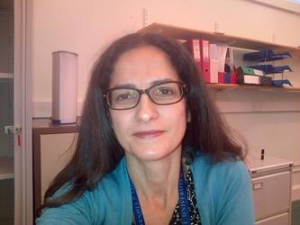InterSci interview with Dr Luciana Brondi on the public health significance of covid-19
On 26 March 2020, Dr Luciana Brondi was interviewed by the InterSci Edinburgh team on a Facebook livestream on the historic and current significance of the COVID 19 as a public health issue.
Highlights from the interview include:
- How predictable a pandemic by an emerging virus infection like the current COVID 19 was and why
- Some of the main public health, clinical and research challenges posed by the current pandemic
- Concepts of infectious diseases epidemiology that are relevant to understand the main features of this current pandemic
- Measurements of infection transmission used in epidemiology and the current factors influencing the transmission of the novel CORONA virus (i.e., SARS-CoV-2)
- The clinical impact of COVID 19 in different countries depending on context-specific characteristics
- The importance of strong health systems in order to minimize both the mortality and the morbidity of this pandemic
- The importance of using epidemiological model-based predictions to devise effective strategies to “slow” such a fast spreading pandemic and save lives
- The likelihood that new interventions will be available in the near future to improve the control of the pandemics
Watch the complete interview here: https://www.facebook.com/InterSciEd/videos/243280723510523/

Dr Brondi is a physician and epidemiologist and has worked in the field of infectious diseases for over 25 years. Her work experience includes public health and research in Brazil, UK, Europe, South Asia and Sub Saharan Africa. Her main area of work in Public Health has been on Infectious Diseases Control, with emphasis on respiratory and vaccine preventable diseases.
Since 2012, she has been teaching (Masters in Public Health) and conducting research on Communicable Diseases Control and Epidemiology at Edinburgh University. Apart from infectious diseases, her main research interests include social determinants of health (including gender), especially in developing countries.